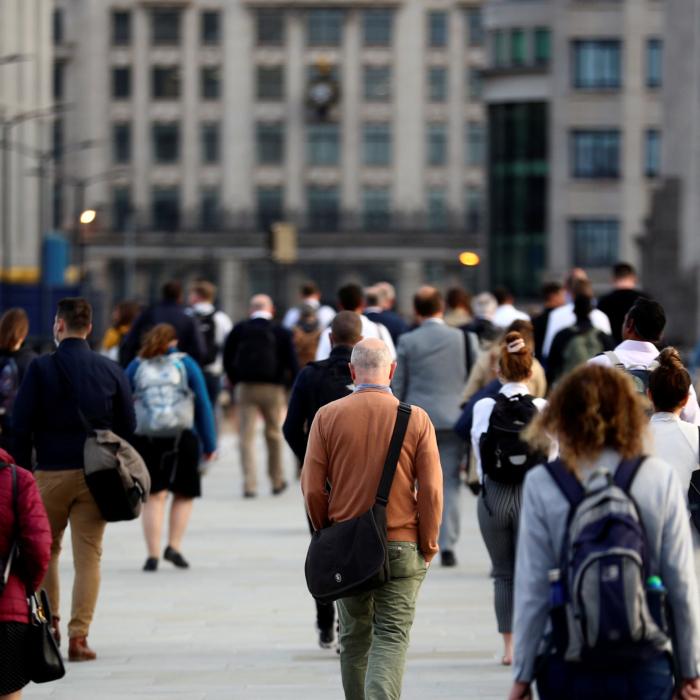More than a fifth of the working age population in the UK is economically inactive, a rate driven in part by rising long-term sickness, official statistics show.
Describing the quarterly rise, the issue of long-term sickness featured again, with the ONS saying, “The increase in economic inactivity in the latest quarter was largely among those inactive because they were looking after family and home, long-term sick, or temporarily sick.”
Statisticians referenced last year’s Annual Population Survey estimates which showed that to December 2023, the majority of those who were inactive because of long-term illness were aged 50 to 64 years, “although long-term sickness has been increasing across all age groups.”
UK’s Working Population ‘Getting Sicker’
Christopher Rocks, the lead economist at the Health Foundation, an independent charity and think tank, said in response to the statistics: “The UK’s working-age population is getting sicker. Today’s figures show a record 2.83 million people aged 16–64 are out of the workforce due to long-term health problems.“A new government serious about growing the economy must tackle this pressing challenge and support the health of our workforce.”
The next government “will need to do much more to help people remain in work and healthy in the first place. This should start by rethinking measures to reduce the generosity of health-related benefits, which risk being counterproductive by increasing poverty and further deteriorating health,” Mr. Rocks added in a statement.
Unemployment Rate Rises
In its employment data release, the ONS also found that the number of unemployed—people out of work and actively looking for jobs—had risen.The national unemployment rate for February to April 2024 had increased to 4.4 percent compared to the same quarter one year ago, which the ONS said was “above estimates” and an increase on the previous quarter.
“This month’s figures continue to show signs that the labour market may be cooling, with the number of vacancies still falling and unemployment rising, though earnings growth remains relatively strong,” the ONS said.
Commenting on the figures, Tony Wilson, director at the Institute for Employment Studies, said the last Parliament had seen “the largest rise in economic inactivity and largest contraction in the size of the workforce since comparable records began in 1971. And this just isn’t happening in other countries, with the UK virtually the only developed economy where the employment rate has fallen since the Covid-19 pandemic.”
“We need to address this urgently, because when employment stops growing the economy stops growing too. Reforming employment support needs to be a top priority for the next Parliament, so that more people can get access to the help that they need to get back into work and get on in work,” Mr. Wilson continued in a statement.







